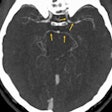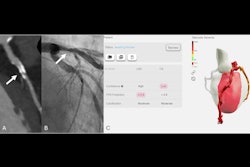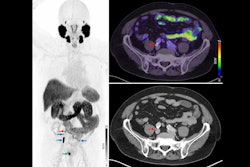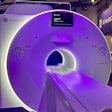More in Home
The pros and cons of setting up a private practice
February 27, 2025
Sustainability echoes throughout ECR 2025 opening ceremony
February 27, 2025
Radiotracers: A primer on safe handling
February 26, 2025
Why is reporting neurovascular contact on MRI important?
February 26, 2025
CT lung imaging features predict progression to pulmonary fibrosis
February 26, 2025
Video from ECR: Photon-counting CT comes under scrutiny at ECR 2025
February 26, 2025
AI Act: Now's the time for hospitals and vendors to step up
February 26, 2025
Siemens emphasizes new software offering, stroke care
February 26, 2025






















